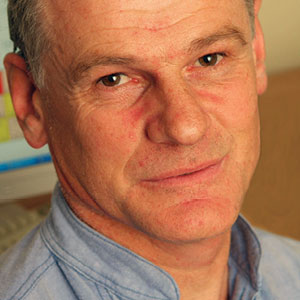The recently published NICE guideline on cancer diagnosis was the culmination of a lifetime’s work for Professor Willie Hamilton.
The Exeter GP and professor of primary care diagnostics at the University of Exeter has been diligently working for years on a symptom-based model for diagnosing cancer. And this approach has now been endorsed by NICE, with Professor Hamilton the clinical lead for the guideline development group at the institute.
But he has a hard sell to convince many GPs that the guideline is workable in practice. Professor Hamilton insists it will pick up patients who currently ‘fall out of the diagnostic net’, but some experts have complained such a long and complicated guideline (it runs to more than 4,000 pages) is unlikely to be of use in a 10-minute consultation.
Professor Hamilton says that producing the guideline was a ‘massive task’, with 37 cancer sites, three years on the job, and a 4,300 page report, but he remains characteristically upbeat: ‘After one particularly arduous meeting I texted my wife, saying: “Progress. I’m not homicidal any more; merely suicidal”.’
After three years working on the guideline, it is not surprising Professor Hamilton picks the day after it was launched as his favourite moment of the past year: ‘I had an evening off to play cricket – and the sun shone. I answered no emails and scored some runs.’
This coming year, Professor Hamilton is working on the completing a report from the National Institute for Health Research DISCOVERY research project that he leads. This programme looks at various routes to facilitate earlier diagnosis of cancer, such as when patients report symptoms and better diagnostic pathways.
‘I’ve several grant applications I need to finalise – though a trip to see our daughter in Zambia has a pretty high priority,’ he adds.
<<< Back to Power 50
Related articles
‘This will help GPs pick up patients who currently fall out of the diagnostic net’
GPs to refer more patients with low-risk cancer symptoms under new NICE guidance
Check hypercalcaemic men for cancer, say researchers
Pulse October survey
Take our July 2025 survey to potentially win £1.000 worth of tokens














